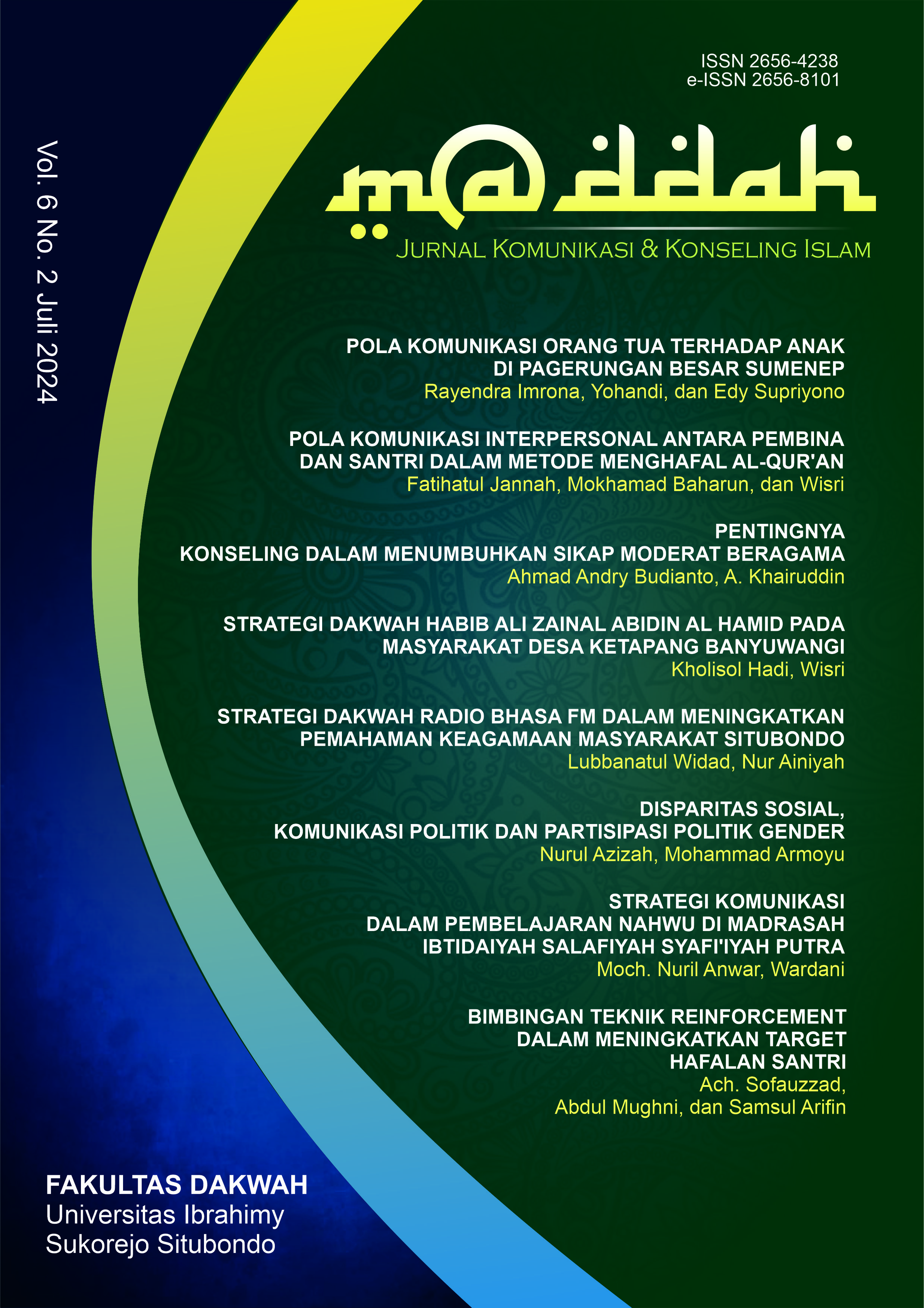Strategi Dakwah Radio BHASA FM dalam Meningkatkan Pemahaman Keagamaan Masyarakat Situbondo
DOI:
https://doi.org/10.35316/maddah.v6i2.5529Keywords:
bhasa fm radio, da'wah strategy and situbondo communityAbstract
This article examines Bhasa FM radio's da'wah strategy in increasing the religious understanding of
the Situbondo community. Radio has been known for a long time as a medium for conveying
information, education and entertainment to the public. However, it is different for Bhasa FM
Situbondo radio, a radio whose orientation is not only on these three things but more on the
domination of Islamic preaching. Seeing that modern society currently tends to be less interested in
religious studies in mosques or prayer rooms, it is hoped that radio can be an alternative in filling
and providing religious nutrition for Situbondo Muslims. The research uses field research methods.
The researcher looked directly into the field in conducting observations, interviews and
documentation studies, to collect complete data and then carry out descriptive analysis to then look
for an answer to the focus of this paper. Bhasa FM radio's da'wah strategy uses a sensory da'wah
strategy (al-manhaj al-hissy) which is also called an experimental strategy or scientific strategy which
is oriented to the five senses and adheres firmly to the results of research and experiments. Bhasa
FM Radio invites audiences to join online or off air, apart from that there is also social media such
as Twitter, Facebook, YouTube and so on. Apart from that, there is also an external approach, namely
data produced by Nielsen surveys, once a month. The aim of this strategy is to find out the age, social
and economic status of the listener and all demographic aspects of the listener.








